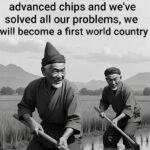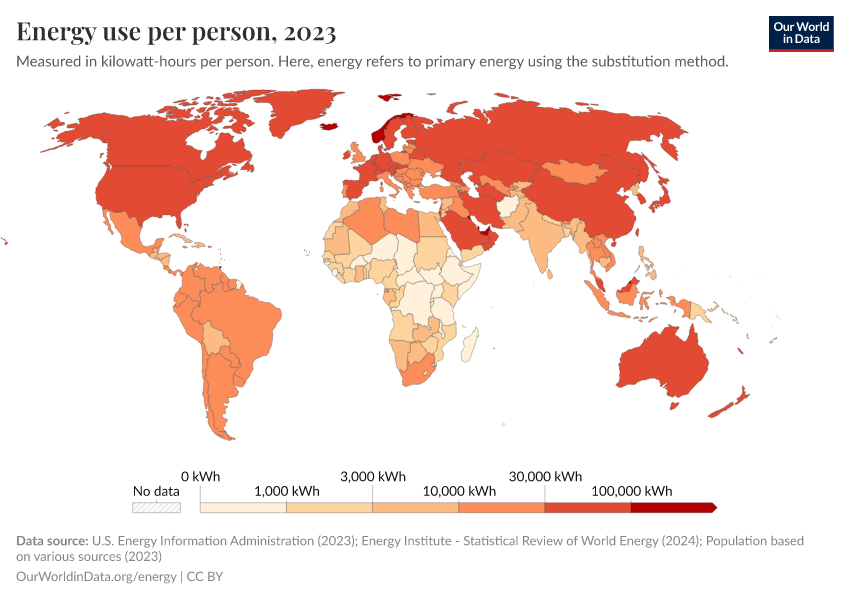Europe’s Nexperia Seizure: How Dutch Wartime Law Became a Weapon in Washington’s Tech War With China
Europe used wartime powers to seize control of Nexperia. The move claims to defend security yet it signals the surrender of economic sovereignty to Washington.
In an extraordinary act of economic self sabotage, the Dutch government used emergency wartime powers to take control of Nexperia, a major semiconductor producer based in the Netherlands and owned by China’s Wingtech Technology. The decision was announced on 12 October 2025. It was the first use of the Goods Availability Act since the Cold War era. That statute was written for rationing food or fuel during invasion. It has now been used on a functioning private company in peace time. Officials said the step would protect the continuity of chip supplies and safeguard Dutch technology. The effect is a political seizure presented as security policy.
Key facts in one minute
• Dutch order dated 30 September 2025 placed Nexperia under tight controls and was made public on 12 October 2025.
• Chinese chief executive Zhang Xuezheng was suspended; a director who is not Chinese was appointed with a decisive vote; company shares were placed under third party custodial management.
• Government cited serious governance shortcomings yet no public evidence was released. Production continued and shipments to European clients were ongoing.
• Timing followed new United States rules that extend restrictions to subsidiaries of companies on the Entity List. Wingtech is on that list.
A law for wartime bread used on peace time chips
The Goods Availability Act was drafted in 1952 during Cold War mobilisation. It lets the state requisition essential goods and industries in a national emergency. It had not been used against a solvent firm that was meeting output targets and serving customers.
Under the order of 30 September the Chinese chief executive was suspended. A director who is not Chinese was installed with a deciding vote. The shares were placed under the control of a court appointed custodian. Control shifted from the lawful owners to a state directed arrangement.
The Ministry of Economic Affairs referred to serious governance shortcomings that required immediate action. No specific evidence was placed in public. Nexperia was operating, compliant with European law, and supplying clients. The trigger appears political and transatlantic rather than operational.
Legal questions before the courts
• Article 17 EU Charter: right to property. Is custodial control proportionate or necessary in a real emergency.
• Article 63 TFEU: free movement of capital with third countries. Does the measure discriminate by nationality.
• Administrative law test: was there evidence of acute risk and was the measure the least restrictive option.
• Due process: were reasons disclosed and reviewable by a court without delay.
Washington’s shadow
The United States expanded its sanctions system with a fifty percent rule. The rule extends restrictions to any subsidiary that is majority owned by an entity on the Entity List. Wingtech is already listed in the United States. The Dutch action followed within days. The sequence looks like Europe enforcing an American embargo by proxy.
United States policy has pressed allies to reduce advanced technology links with China. ASML faced limits on shipping leading edge lithography kit. The United Kingdom blocked the Newport Wafer Fab deal. The Netherlands has gone further than export control. The state has taken control of a company because of the nationality of its ultimate owners.
Timeline at a glance
• 2017 to 2019: Nexperia is carved out of NXP and becomes majority owned by Wingtech.
• 2024 to 2025: Wingtech is listed by United States authorities. A new rule extends controls to subsidiaries.
• 30 September 2025: Dutch order restricts changes to assets, intellectual property, operations, and personnel for one year.
• Early October 2025: Amsterdam Court suspends the Chinese chief executive, orders appointment of a director who is not Chinese with a deciding vote, and places shares into custodial management except for one share.
• 12 October 2025: The Hague announces the action under the Goods Availability Act.
A European success caught in the cross fire
Before the intervention Nexperia was a rare European semiconductor success. It was profitable, expanding, and embedded in automotive and consumer electronics supply chains. Its power and logic chips keep European manufacturing moving. Destabilising that anchor undermines the stated aim of the European Chips Act. Strategy on paper is now colliding with politics in practice.
Impact on investment confidence
• Property rights appear dependent on politics, not purely on law.
• The risk premium for non Western capital in Europe will rise.
• Future mergers and acquisitions involving Chinese ownership will face greater scrutiny and risk of failure.
• Investors from the Gulf, India, and Asia may redirect funds to more predictable jurisdictions.
Legal and economic self harm
The legal issues are clear. The right to property is protected by the EU Charter. Free movement of capital is protected by the Treaties. Neither sits well with expropriative control without a proven emergency. There was no imminent threat, no insolvency, and no proven breach placed on record. A statute written for war time requisition has been used in peace time to overpower shareholder control.
Markets read the signal at once. Wingtech shares in Shanghai hit the daily limit down after disclosure. More important is the message to future investors. When nationality collides with politics, property rights in Europe can give way. The pipeline of investment from outside the West will thin.
The illusion of autonomy
Leaders in Europe speak often of strategic autonomy. In practice the term has become ceremonial. From energy to semiconductors, key decisions now mirror United States priorities. The Nexperia case offered a clear test. Defend a European registered company that follows European law. Impose binding promises on investment, jobs, and compliance. Refuse extraterritorial pressure. That would have been sovereignty.
The Netherlands did the opposite. It subordinated ownership and governance to alliance management and then called it security. A region that cannot protect lawful ownership cannot credibly claim industrial leadership.
Beijing’s calculus and likely response
Beijing condemned the action as an abuse of national security language and discriminatory in effect. China holds structural leverage. Europe depends on inputs such as rare earths and refined materials where China has scale. Major Dutch and European firms have significant assets in China. Reciprocity rarely stays theoretical for long.
If tit for tat begins, Europe’s weak points are clear. There is a materials dependency that is not yet replaced, a manufacturing gap that cannot be closed quickly, and a credibility gap with the investors Europe is trying to court.
What Europe has really nationalised
By intervening in Nexperia, the Netherlands did not nationalise technology. It nationalised fear. Fear of United States displeasure. Fear of funding constraints. Fear of a threat that was not proven. A statute conceived to secure bread in war has been used to confiscate microchips in peace. This may satisfy a news cycle. It does not build a reputation for the rule of law.
Conclusion. sovereignty, rationed
The Nexperia affair will not end with a press release or a short review. The lasting effect is reputational. Investors will see a Europe where contracts can be subordinated to alliance management, where industrial policy reacts rather than leads, and where strategic autonomy is spoken but not practiced.
When governments confiscate chips as if they were loaves of bread, it is not only strategic autonomy that gets rationed. It is sovereignty itself.
References & Sources
- “Dutch government takes control of Chinese-owned chipmaker Nexperia,” Financial Times.
- “Dutch seizure of chipmaker followed U.S. ultimatum over Chinese chief,” Financial Times.
- “In rare move, Dutch government takes control of Chinese-owned chipmaker Nexperia,” Reuters, 13 Oct 2025.
- “Dutch government takes control of Chinese-owned chipmaker Nexperia over governance shortcomings,” Associated Press.
- Ragnhildur Helgadóttir, “Economic Crises and Emergency Powers in Europe,” Harvard Law & Policy Review (2012).
- C. Cinnirella, “‘Emergency Powers’ of the European Union: An Inquiry on the Supranational Model,” European Papers, 2025.
- “Human Rights in Times of Emergency,” *Oxford Legal Review* (on property rights in emergencies).
- E. Gavriil, “Protection of Property under Human Rights and Investment Law,” *Laws* (2024).
- B. A. Meyler, “Economic Emergency and the Rule of Law,” Cornell LSRP Paper.
All sources accessed October 2025. Primary reporting from FT, Reuters, AP; secondary legal analysis from peer-reviewed and scholarly works.
Further Reading on Telegraph Online
Born as a Weapon in the New Cold War: America’s Chip Blockade and China’s Self-Reliance
A deep analysis of how Washington’s semiconductor embargo has accelerated Beijing’s domestic innovation drive, forcing China to develop its own chip ecosystems and supply chains. Read the full article
China’s Vision of a Multipolar World: From Survival to Strategy
Examines Beijing’s evolving foreign policy through the lens of self-determination, economic corridors, and military restraint — and how it contrasts with U.S. containment doctrine. Read the full article
Inside the New Chinese Embassy in London — and the “Spy Tunnels” Debate
Investigates claims about underground infrastructure beneath China’s new London embassy site and the political controversy it has sparked in Westminster. Read the full article
The End of the Umbrella: Europe’s Lesson in Dependency
A commentary on how the Ukraine conflict and Washington’s sanctions architecture have exposed Europe’s structural reliance on U.S. security and financial systems. Read the full article
Related articles selected from Telegraph Online archives, accessed October 2025.



